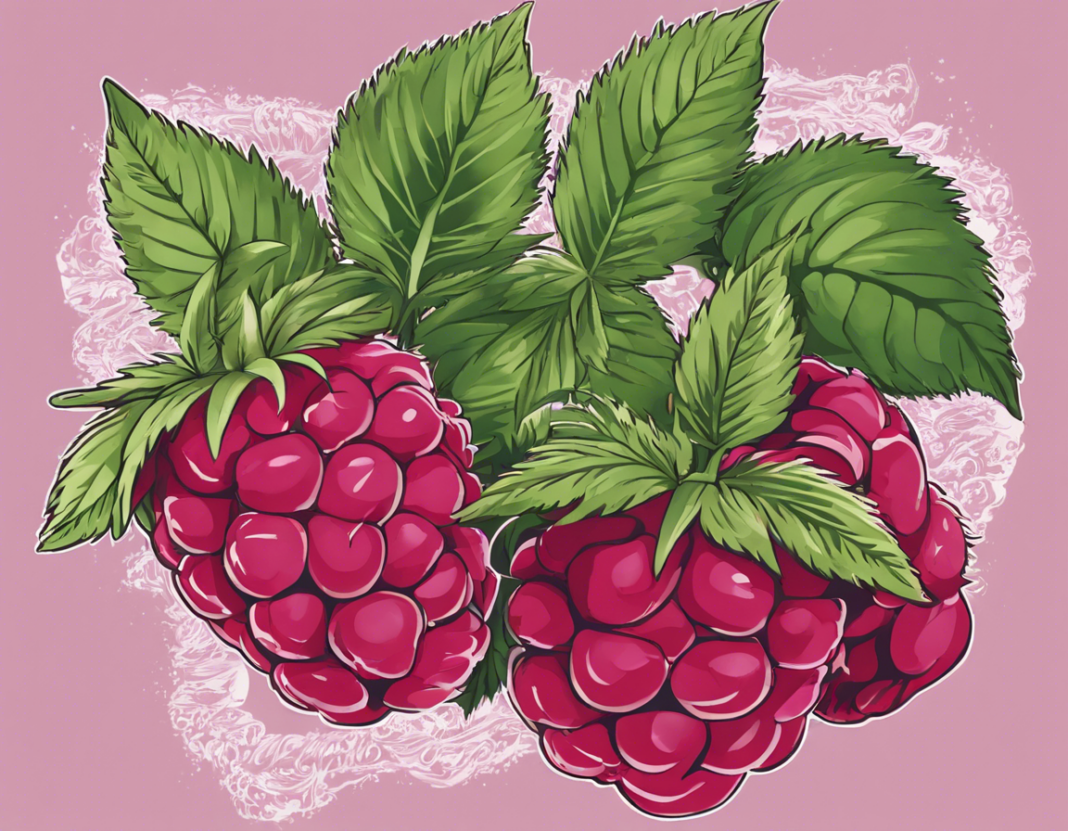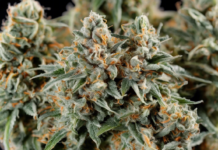Introduction
When it comes to exploring the diverse world of cannabis strains, Raspberry Kush stands out as a potent and flavorful option with a unique profile. This indica-dominant hybrid is renowned for its relaxing and euphoric effects, making it a popular choice among both recreational and medical users. In this comprehensive guide, we will delve into the characteristics, effects, and potential benefits of Raspberry Kush, shedding light on why this strain has garnered such a strong following in the cannabis community.
What is Raspberry Kush?
Raspberry Kush is a hybrid strain that is primarily indica-dominant, resulting from the crossbreeding of Hindu Kush and Afghani genetics. This potent strain typically boasts a high THC content, often exceeding 20%, which contributes to its powerful effects. The aroma and flavor of Raspberry Kush are often described as sweet and fruity, reminiscent of its namesake raspberry fruit. Visually, the buds of Raspberry Kush are dense and covered in a thick layer of trichomes, giving them a frosty and resinous appearance.
Effects of Raspberry Kush
One of the hallmark characteristics of Raspberry Kush is its potent relaxing and euphoric effects. Users often report feeling a sense of calm and tranquility wash over them shortly after consuming this strain. The indica dominance of Raspberry Kush lends itself to body relaxation and pain relief, making it a popular choice for those seeking relief from physical discomfort or tension. Additionally, the euphoric effects of Raspberry Kush can uplift the mood and induce a sense of happiness and contentment.
Medical Benefits
Beyond its recreational appeal, Raspberry Kush also offers a range of potential medical benefits for users. The strong analgesic properties of this strain make it an effective choice for managing pain and inflammation, which can be especially beneficial for individuals dealing with chronic conditions. Furthermore, the calming effects of Raspberry Kush may help alleviate symptoms of anxiety, stress, and insomnia, promoting a sense of relaxation and aiding in better sleep.
Potential Side Effects
While Raspberry Kush can offer numerous benefits, it is essential to be aware of potential side effects that may accompany its use. Common side effects of this strain, as with many high-THC varieties, may include dry mouth and dry eyes. In some cases, users may also experience dizziness, paranoia, or anxiety if consumed in excessive amounts, underscoring the importance of moderation and responsible use.
Cultivation Tips
For those interested in cultivating Raspberry Kush, it is worth noting that this strain tends to thrive in a controlled indoor environment where factors such as humidity and temperature can be carefully regulated. Raspberry Kush plants typically have a flowering time of around 8-9 weeks and can yield moderate to high amounts of dense and resinous buds. As with any cultivation endeavor, ensuring proper nutrient balance and pruning techniques can help maximize the growth and potency of Raspberry Kush plants.
Popular Consumption Methods
Raspberry Kush can be enjoyed through a variety of consumption methods, each offering a unique experience for users. Smoking the dried flower remains a classic and popular choice, providing quick onset and potent effects. Vaporization is another common method that allows for the inhalation of cannabinoids without the harmful byproducts associated with smoking. Additionally, edibles infused with Raspberry Kush oil or extract offer a discreet and long-lasting alternative for those looking to avoid inhalation.
FAQs
- Is Raspberry Kush a sativa or indica-dominant strain?
-
Raspberry Kush is primarily an indica-dominant hybrid, known for its relaxing and calming effects.
-
What are the typical aroma and flavor profiles of Raspberry Kush?
-
Raspberry Kush is characterized by its sweet and fruity aroma, reminiscent of ripe raspberries, with a similar taste profile.
-
Are there any potential medical benefits of Raspberry Kush?
-
Raspberry Kush may offer pain relief, stress reduction, and aid in sleep for medical users.
-
What are the common side effects associated with Raspberry Kush?
-
Common side effects may include dry mouth, dry eyes, dizziness, and in some cases, anxiety or paranoia.
-
How long does it take for Raspberry Kush plants to flower when cultivated?
- Raspberry Kush plants typically have a flowering time of around 8-9 weeks.
In conclusion, Raspberry Kush stands out as a potent and versatile cannabis strain that offers a harmonious blend of relaxing effects, flavorful aromas, and potential therapeutic benefits. Whether enjoyed recreationally or sought for its medicinal properties, Raspberry Kush remains a favorite among cannabis enthusiasts for its unwavering potency and unique sensory experience.






